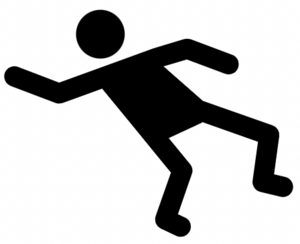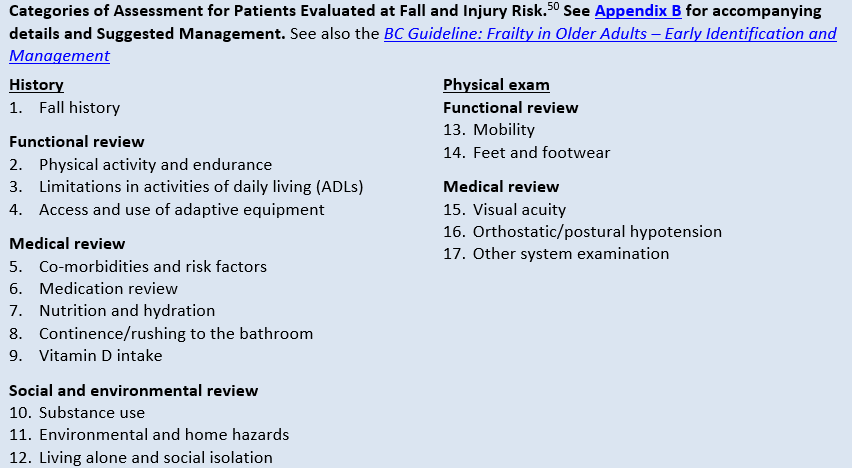The Single Strategy To Use For Dementia Fall Risk
The Single Strategy To Use For Dementia Fall Risk
Blog Article
The Best Guide To Dementia Fall Risk
Table of ContentsGetting My Dementia Fall Risk To WorkThe Basic Principles Of Dementia Fall Risk Unknown Facts About Dementia Fall RiskDementia Fall Risk Fundamentals ExplainedWhat Does Dementia Fall Risk Mean?
Evaluating autumn threat aids the entire health care team establish a more secure environment for each individual. Ensure that there is an assigned location in your clinical charting system where staff can document/reference ratings and document pertinent notes connected to fall avoidance. The Johns Hopkins Autumn Danger Evaluation Device is one of lots of devices your team can make use of to assist stop damaging medical occasions.Patient falls in healthcare facilities are typical and incapacitating negative events that linger regardless of years of initiative to reduce them. Improving interaction throughout the examining nurse, care group, client, and client's most involved loved ones might enhance fall avoidance initiatives. A group at Brigham and Female's Healthcare facility in Boston, Massachusetts, sought to develop a standardized fall avoidance program that centered around boosted interaction and individual and household engagement.

The technology team highlighted that effective application depends on client and staff buy-in, assimilation of the program right into existing workflows, and fidelity to program procedures. The team noted that they are facing exactly how to make certain connection in program implementation throughout periods of dilemma. During the COVID-19 pandemic, for example, a boost in inpatient falls was linked with restrictions in client engagement together with restrictions on visitation.
Our Dementia Fall Risk Statements
These events are generally taken into consideration avoidable. To carry out the treatment, companies need the following: Access to Loss pointers resources Autumn pointers training and retraining for nursing and non-nursing staff, including brand-new registered nurses Nursing workflows that enable for client and family members engagement to conduct the falls assessment, make sure usage of the prevention plan, and conduct patient-level audits.
The outcomes can be highly damaging, usually accelerating patient decline and triggering longer health center stays. One study estimated remains boosted an added 12 in-patient days after a person autumn. The Loss TIPS Program is based upon interesting people and their family/loved ones throughout three primary processes: evaluation, personalized preventative interventions, and auditing to ensure that patients are engaged in the three-step fall avoidance process.
The client assessment is based on the Morse Autumn Scale, which is a validated fall risk analysis tool for in-patient healthcare facility setups. The scale consists of the six most typical reasons patients in hospitals fall: the individual fall background, risky problems (including polypharmacy), use of IVs and other outside devices, mental standing, stride, and wheelchair.
Each threat factor relate to several actionable evidence-based interventions. The registered nurse develops a strategy that integrates the treatments and shows up to the care group, person, and family members on a laminated poster or printed visual help. Nurses establish the plan while consulting with the person and the individual's household.
Dementia Fall Risk - An Overview
The poster works as an interaction tool with other participants of the patient's care group. Dementia Fall Risk. The audit part of the program consists of assessing the client's expertise of their threat elements and avoidance strategy at the unit and medical facility degrees. Registered nurse champions conduct at least five private interviews a month with individuals and their family members to check for understanding of the fall avoidance plan

An approximated 30% useful link of these drops outcome in injuries, which can range in seriousness. Unlike other negative events that call for a standard clinical reaction, loss prevention depends extremely on the demands of the person. Consisting of the input of individuals who know the client best enables for higher personalization. This strategy has actually shown to be much more efficient than autumn prevention programs that are based mainly on the production of a risk score and/or are not adjustable.
Get This Report about Dementia Fall Risk

Based on bookkeeping results, one site had 86% conformity and 2 websites had over 95% conformity. A cost-benefit evaluation of the Fall ideas program in eight hospitals approximated that the program expense $0.88 per patient to carry out and caused cost savings of $8,500 per 1000 patient-days in direct prices associated to the prevention of 567 tips over three years and 8 months.
According to the advancement team, organizations interested in carrying out the program ought to perform a readiness analysis and falls avoidance gaps evaluation. investigate this site 8 Additionally, companies should make certain the required framework and process for execution and create an application strategy. If one exists, the organization's Autumn Avoidance Task Pressure should be associated with preparation.
Getting The Dementia Fall Risk To Work
To start, organizations ought to make sure conclusion of training components by registered nurses and nursing assistants - Dementia Fall Risk. Medical facility staff should evaluate, based upon the demands of a healthcare facility, whether to make use of a digital health and wellness document printout or paper version of the loss avoidance strategy. Implementing teams should recruit and educate nurse champs and develop procedures for bookkeeping and coverage on autumn data
Personnel require to be entailed in the procedure of revamping the process to engage individuals and family in the evaluation and prevention plan process. Systems ought to be in place to ensure that units can comprehend why a loss occurred and remediate the reason. Much more specifically, registered nurses need to have channels to offer continuous responses to both personnel and device leadership so they can adjust and enhance loss prevention workflows and interact systemic problems.
Report this page